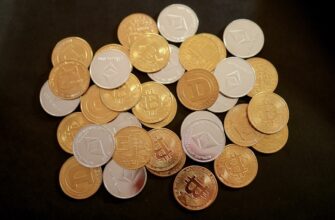- Introduction: Navigating NFT Taxes in Spain
- Understanding NFT Taxation in Spain
- How to Calculate Your NFT Profit Accurately
- Step-by-Step Guide to Reporting NFT Profit
- Deadlines and Penalties for Non-Compliance
- NFT Tax FAQ: Spain Edition
- 1. Are NFT losses tax-deductible in Spain?
- 2. Do I pay tax on NFT gifts or airdrops?
- 3. How are NFT staking rewards taxed?
- 4. What if I bought NFTs with cryptocurrency?
- 5. Must I report NFTs held in foreign wallets?
Introduction: Navigating NFT Taxes in Spain
As Non-Fungible Tokens (NFTs) explode in popularity, Spanish investors must understand how to legally report profits. In Spain, NFT sales are taxable events under capital gains tax rules. Failure to properly declare earnings can lead to audits, fines, or legal consequences. This guide breaks down exactly how to calculate, declare, and pay taxes on NFT profits in Spain—ensuring you stay compliant while maximizing deductions.
Understanding NFT Taxation in Spain
The Spanish Tax Agency (Agencia Tributaria) treats NFTs as digital assets, similar to cryptocurrencies. Profits from NFT sales fall under Capital Gains Tax (Impuesto sobre la Renta de no Residentes or IRNR for non-residents, Impuesto sobre la Renta de las Personas Físicas for residents). Key principles include:
- Tax applies when selling NFTs for more than purchase price
- Residents pay 19%-26% based on profit amount (scales with earnings)
- Non-residents pay 19% flat rate on Spanish-sourced gains
- Losses can offset gains from other asset sales
How to Calculate Your NFT Profit Accurately
Your taxable profit is: Selling Price – (Purchase Price + Allowable Expenses). Track these costs:
- Acquisition costs: Original NFT price, minting fees
- Transaction fees: Gas fees, platform commissions (OpenSea, Rarible)
- Enhancement costs: Provenance verification, digital upgrades
- Wallet/transfer fees related to the sale
Example: Bought NFT for €1,000 + €50 gas fee. Sold for €2,000 with €100 platform fee. Profit = €2,000 – (€1,000 + €50 + €100) = €850 taxable.
Step-by-Step Guide to Reporting NFT Profit
- Gather Documentation: Collect purchase/sale receipts, wallet histories, and exchange records.
- Calculate Net Profit: Use the formula above for each NFT transaction.
- Complete Modelo 100 Form: Report gains in Section G (Capital Gains and Losses) of Spain’s annual income tax return.
- Declare as Digital Asset: Specify “NFT” under asset description with acquisition/sale dates.
- Offset Losses: Deduct NFT losses from other capital gains in the same tax year.
- Submit by Deadline: File between April-June following the tax year (e.g., 2023 sales reported by June 2024).
Deadlines and Penalties for Non-Compliance
Spanish NFT traders must declare profits annually via Modelo 100 by June 30th. Late filings trigger penalties:
- 5% immediate fine + 1% monthly interest on unpaid tax
- 20%-150% surcharges for intentional underreporting
- Criminal liability for evasion over €120,000
Note: Spain’s 720 Form requires declaring overseas-held NFTs exceeding €50,000 by March 31st.
NFT Tax FAQ: Spain Edition
1. Are NFT losses tax-deductible in Spain?
Yes. Net capital losses from NFTs can offset gains from stocks, crypto, or property sales. Unused losses carry forward 4 years.
2. Do I pay tax on NFT gifts or airdrops?
Gifts are taxed as donations (up to 34% for recipients). Airdrops count as miscellaneous income at marginal income tax rates (19%-47%).
3. How are NFT staking rewards taxed?
Rewards are taxed as ordinary income upon receipt (based on market value). Subsequent sales incur capital gains tax.
4. What if I bought NFTs with cryptocurrency?
Crypto-to-NFT trades are two taxable events: 1) Crypto disposal (capital gain/loss), 2) NFT acquisition at market value.
5. Must I report NFTs held in foreign wallets?
Yes. Use Form 720 for declarations, and report all sales regardless of wallet location. Spain has crypto data-sharing agreements with major exchanges.
Pro Tip: Use crypto tax software like Koinly or Accointing to automate Spanish NFT tax calculations. When in doubt, consult a gestor specializing in digital assets.








